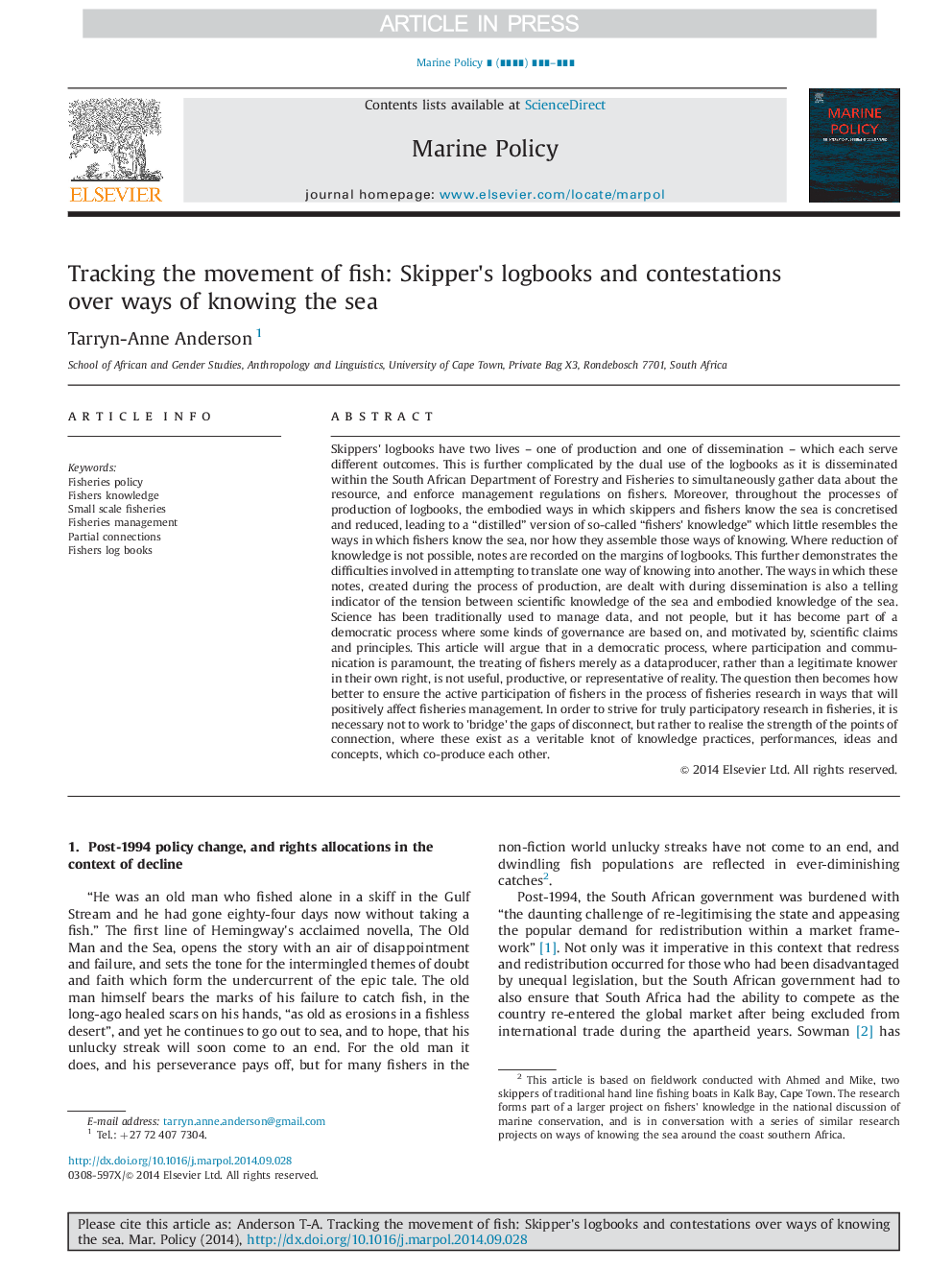| کد مقاله | کد نشریه | سال انتشار | مقاله انگلیسی | نسخه تمام متن |
|---|---|---|---|---|
| 7490129 | 1485519 | 2015 | 7 صفحه PDF | دانلود رایگان |
عنوان انگلیسی مقاله ISI
Tracking the movement of fish: Skippers׳ logbooks and contestations over ways of knowing the sea
دانلود مقاله + سفارش ترجمه
دانلود مقاله ISI انگلیسی
رایگان برای ایرانیان
کلمات کلیدی
موضوعات مرتبط
مهندسی و علوم پایه
سایر رشته های مهندسی
مهندسی دریا (اقیانوس)
پیش نمایش صفحه اول مقاله

چکیده انگلیسی
Skippers׳ logbooks have two lives - one of production and one of dissemination - which each serve different outcomes. This is further complicated by the dual use of the logbooks as it is disseminated within the South African Department of Forestry and Fisheries to simultaneously gather data about the resource, and enforce management regulations on fishers. Moreover, throughout the processes of production of logbooks, the embodied ways in which skippers and fishers know the sea is concretised and reduced, leading to a “distilled” version of soâcalled “fishers׳ knowledge” which little resembles the ways in which fishers know the sea, nor how they assemble those ways of knowing. Where reduction of knowledge is not possible, notes are recorded on the margins of logbooks. This further demonstrates the difficulties involved in attempting to translate one way of knowing into another. The ways in which these notes, created during the process of production, are dealt with during dissemination is also a telling indicator of the tension between scientific knowledge of the sea and embodied knowledge of the sea. Science has been traditionally used to manage data, and not people, but it has become part of a democratic process where some kinds of governance are based on, and motivated by, scientific claims and principles. This article will argue that in a democratic process, where participation and communication is paramount, the treating of fishers merely as a dataproducer, rather than a legitimate knower in their own right, is not useful, productive, or representative of reality. The question then becomes how better to ensure the active participation of fishers in the process of fisheries research in ways that will positively affect fisheries management. In order to strive for truly participatory research in fisheries, it is necessary not to work to ׳bridge׳ the gaps of disconnect, but rather to realise the strength of the points of connection, where these exist as a veritable knot of knowledge practices, performances, ideas and concepts, which co-produce each other.
ناشر
Database: Elsevier - ScienceDirect (ساینس دایرکت)
Journal: Marine Policy - Volume 60, October 2015, Pages 318-324
Journal: Marine Policy - Volume 60, October 2015, Pages 318-324
نویسندگان
Tarryn-Anne Anderson,